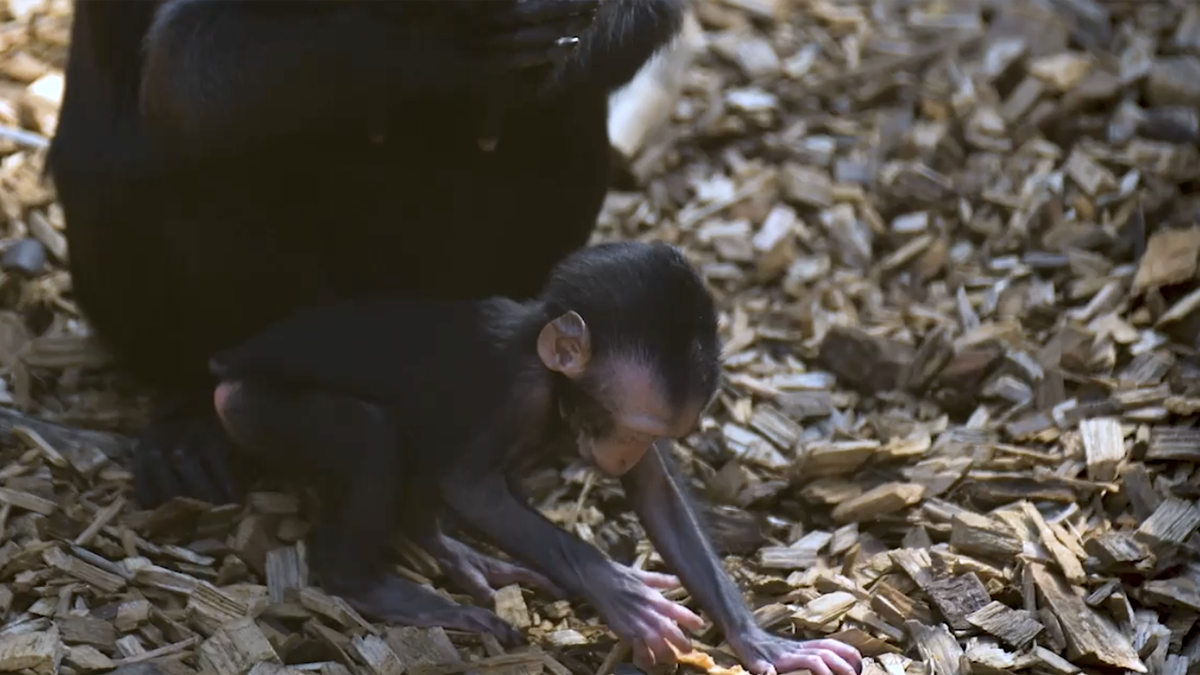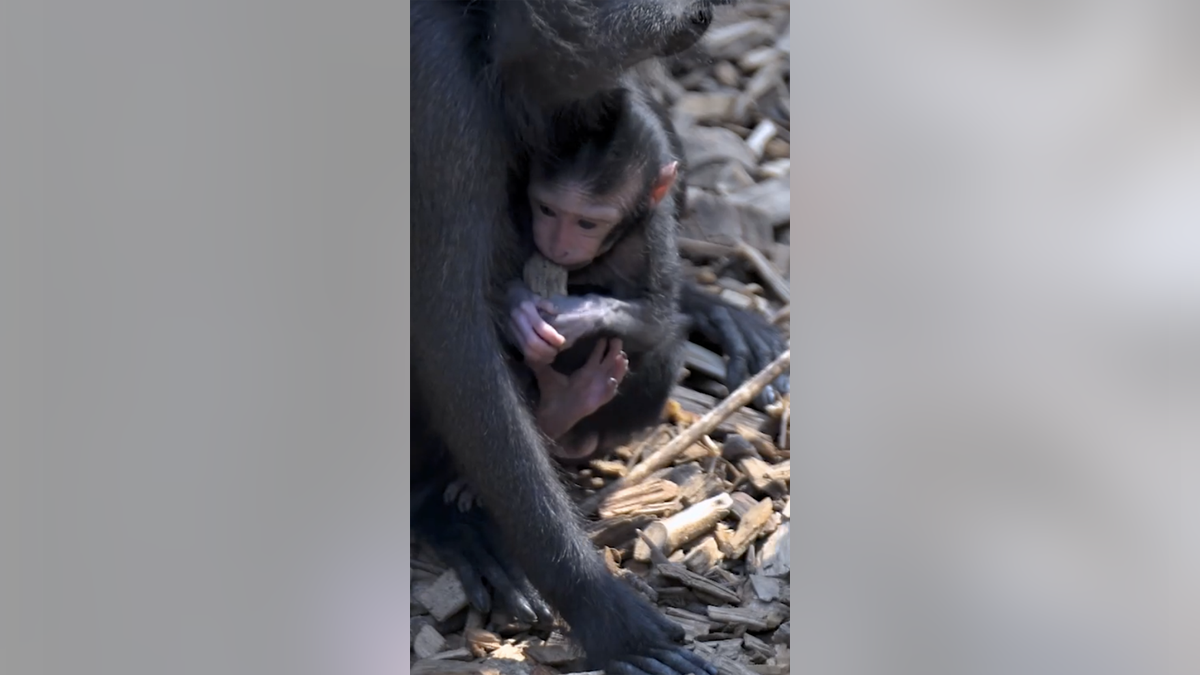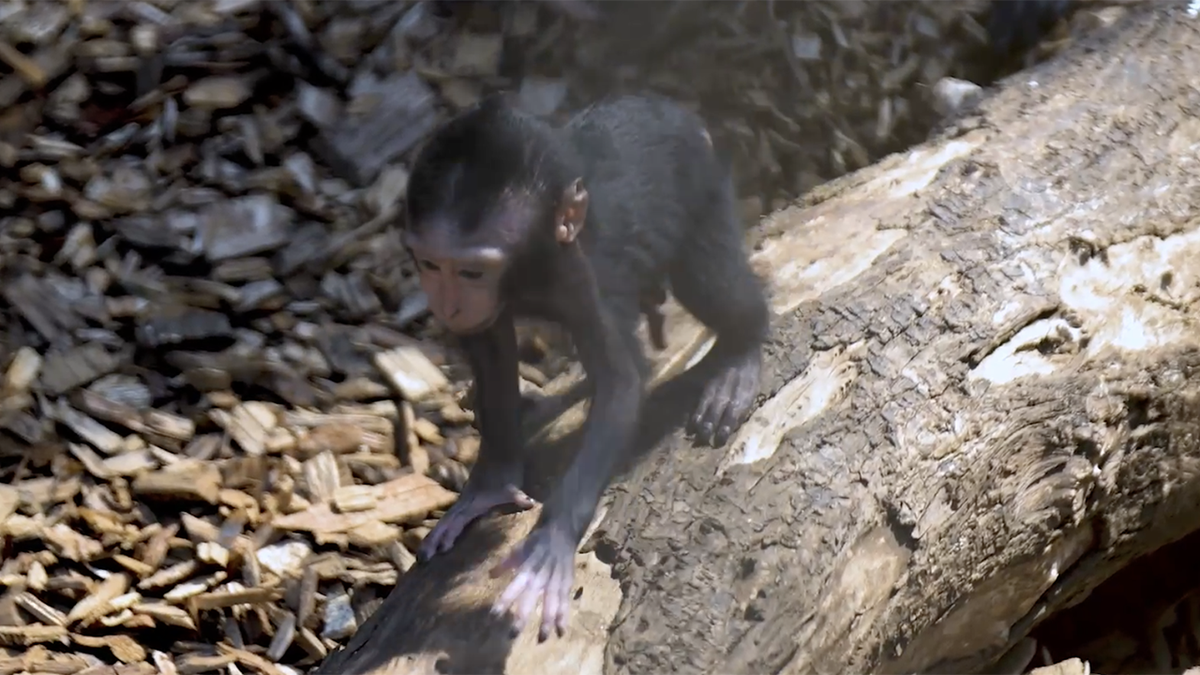Baby monkey seen playing among friends and family
An endangered monkey — a Sulawesi Crested Macaque monkey — gave birth to a newborn at the Chester Zoo in Cheshire, England. See the adorable baby interact with others!
Many animals across the globe are in danger of becoming extinct — and the Sulawesi crested macaque monkey is one of them.
The Chester Zoo in Cheshire, England, recently welcomed a rare newborn monkey, one that will live in its habitat to help fortify the species.
The baby monkey was born on May 16 to mom Rumple and dad Masamma, but the baby monkey's name is unknown as of now, according to British news service SWNS.
VIRAL FACEBOOK VIDEO SHOWS CHIMPANZEE MAMA AND HER BABY CUDDLING, PLAYING AFTER THEY WERE SEPARATED
The newborn was seen running about the habitat with its mother, eating and climbing about various tree branches.
The conservation works to breed the animals while safeguarding them from extinction, Mark Brayshaw, head of mammals at the Cheshire Zoo, told SWNS.

A rare endangered monkey was seen playing among others in the Chester Zoo in Upton-by-Chester, in Cheshire, England. (SWNS)
"Every birth is a step forward for the international conservation breeding program that’s working to safeguard the future of this critically endangered species," he said.
BABY CHIMPANZEE WHO CHARMED THE WORLD IN VIRAL REUNION WITH HIS MOTHER DIES: ‘OUR HEARTS ARE BROKEN’
These particular monkeys would struggle to survive in the wild today, Brayshaw said.

The baby monkey is a Sulawesi crested macaque, considered critically endangered. (SWNS)
"These charismatic monkeys face a plethora of threats in [the] wild … They’re also targets for poachers," he added.
In Indonesia, the monkeys' homeland, they are considered "a local delicacy" and many people eat them on special occasions, Brayshaw noted.
CLICK HERE TO SIGN UP FOR OUR LIFESTYLE NEWSLETTER
Experts have estimated there are less than 5,000 Sulawesi crested macaque monkeys on the island of Sulawesi, Indonesia.
The monkeys are believed to normally live in groups of 25 to 30.

The zoo is working to keep the monkeys safe within its facilities, as the animals are under threat when in the wild. (SWNS)
The rare monkeys' population has decreased significantly over the last 40 years by 80%, according to SWNS.
The International Union for Conservation of Nature has listed the monkey as critically engendered, it also reported.
CLICK HERE TO GET THE FOX NEWS APP
These monkeys can be identified by a narrow patch of hair that runs across the top of the head from behind the overhanging brow, according to Britannica.com.


